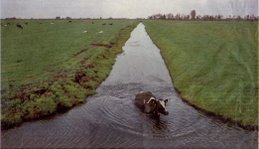You should go there and read the interesting discussion of the book between Cole and some readers.
My appreciation: Juan Cole succeeds in doing two things that, on top of one another, normally are above the forces of a normal human being.Juan Cole was one of the first and most valuable voices to vault into public attention from the political blogosphere. As America blindly stumbled into Iraq in 2003, Cole's analyses and daily summaries of Arabic-language news at Informed Comment became an essential counterweight to government-dictated propaganda in the U.S. media for tens of thousands of regular readers.
But as an outstanding and experienced historian, Dr. Cole's knowledge ranges far beyond Iraq. In Napoleon's Egypt: Invading the Middle East, Cole provides the same perspective and keen insight regarding a military incursion that occurred two centuries ago -- the French effort, led by then-general Napoleon Bonaparte, to invade and occupy Egypt.
Cole’s fluency in both French and Arabic enabled him to scour and compare contemporaneous sources in each language, and the resulting account gives equal weight to each side of the awkward collision of cultures (including attempts to discern the truth when different retellings conflict). And the tone, although well-informed, is scarcely academic -- because Cole's sources include numerous eyewitness journals, letters, and other firsthand reports, he is able to weave a rich, complex narrative that is as involving as any novel on the subject could be.
Although he almost never makes a direct connection, Cole doesn't have to mention Iraq for several elements of his story to resonate with modern-day news junkies. It's hard not to hear the echoes of neocon self-absorption in Napoleon's efforts to blend Enlightenment philosophy with brutal military conquest, or Iraq quasi-viceroy L. Paul Bremer's clueless egotism in Bonaparte's hamfisted communications with the people of Cairo, or especially the similarly dogged, draining insurgencies that result from a distant nation's attempt to impose its will on millions of people.
The details Cole gleans from his research (some of which he continues to post at a blog devoted to the book), though, make Napoleon's Egypt a unique and personal tale worth reading in its own right. With that, I am delighted to be able to introduce Juan Cole, who is joining us to answer questions about the book.
- 1. He publishes one or more daily inside-informations about what is going on in Iraq, summarily put into the context of his vast knowledge of the Middlke East political, social, economic and historical landscape. Informed, quick and oblective.
- 2. He continues his in-depth studies, like this one, and plays a role in defending academic freedom against conservative, biased intrusions by the actual US Government, its services and satellite watchdogs, like the AEI & c.
The Book
The Napoleon book (click on the image to see its Amazon.com page) is reviewed on Amazon by Reed Elsevier as follows:
In July 1798, Napoleon landed an expeditionary force at Alexandria in Egypt, the opening move in a scheme to acquire a new colony for France, administer a sharp rebuff to England and export the values of French republicanism to a remade Middle East.Georg W. Bush is everything opposite to the 1798 Napoleon. He has no enlightenment objectives. Compare the fate of the invaluable objects robbed from the Iraq National Museum in April 2003 under the eyes of the American invaders with the way Napoleon's expedition opened the way, (through the 3-lingual Rosette Pyramid) to understand ancient Egyptian Hieroglyphs.
Cole, a historian of the Middle East at the University of Michigan, traces the first seven months of Napoleon's adventure in Egypt. Relying extensively on firsthand sources for this account of the invasion's early months, Cole focuses on the ideas and belief systems of the French invaders and the Muslims of Egypt.
Cole portrays the French as deeply ignorant of cultural and religious Islam. Claiming an intent to transplant liberty to Egypt, the French rapidly descended to the same barbarism and repression of the Ottomans they sought to replace. I
slamic Egypt, divided by class and ethnic rivalries, offered little resistance to the initial French incursion.
Over time, however, the Egyptians produced an insurgency that, while it couldn't hope to win pitched battles, did erode French domination and French morale. Perplexingly, Cole ends his account in early February 1799, with Napoleon still in control of Egypt but facing increasingly effective opposition. Napoleon's attack on Syria is only mentioned, not detailed, and his return to Cairo and eventual flight to France are omitted altogether.
In a brief epilogue, Cole makes an explicit comparison between Napoleon's adventure in Egypt and the current American occupation of Iraq. Though at times episodic and disorganized, this doesn't detract from the value of Cole's well-researched contribution to Middle Eastern history. Illus. (Aug.)
Copyright © Reed Business Information, a division of Reed Elsevier Inc. All rights reserved.
I stick to my Caligula comparison. Which is sad enough.
But interesting parallels can be found in the disastrous military history of the temporary occupation. It is there, that Cole applies his "micro"-approach (known from his Informed Comments" on Iraq), citing an abundance of letters home from French participants in the expedition.
The book doesn't describe the end of Napoleon's expedition. However, the way Napoleon and the top generals abandoned the thousands of lesser soldiers they brought to the country, when their defeat became apparent, may forebode the way, in which Bush will end his Iraq adventure.
Buy and read the book.
European readers: On Amazon, switch to Amazon.uk, Amazon.de or to Amazon.fr, to get delivery for a more reasonable charge. Belgian and Dutch readers may prefer to try Proxis, that has an excellent English language books store. French translation of this Post to be published on HUIBSLOG and L'Europe Chez Soi.



